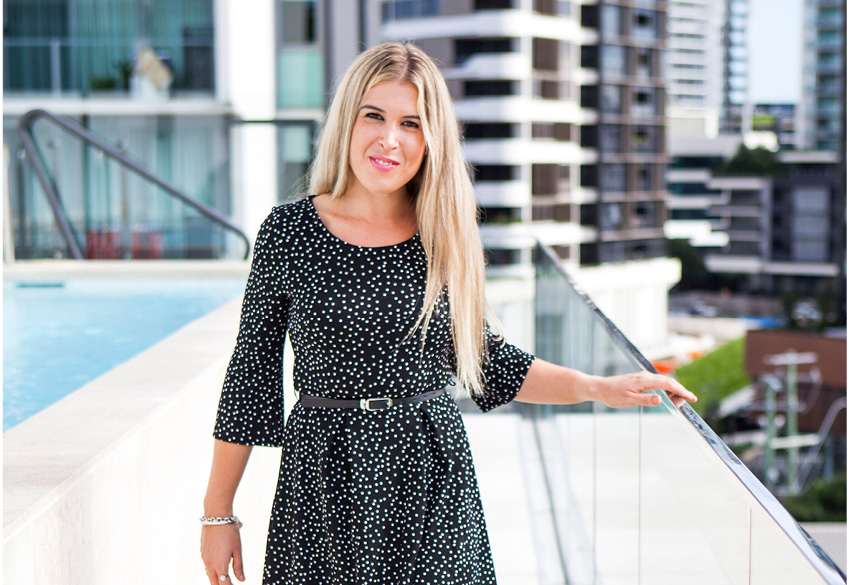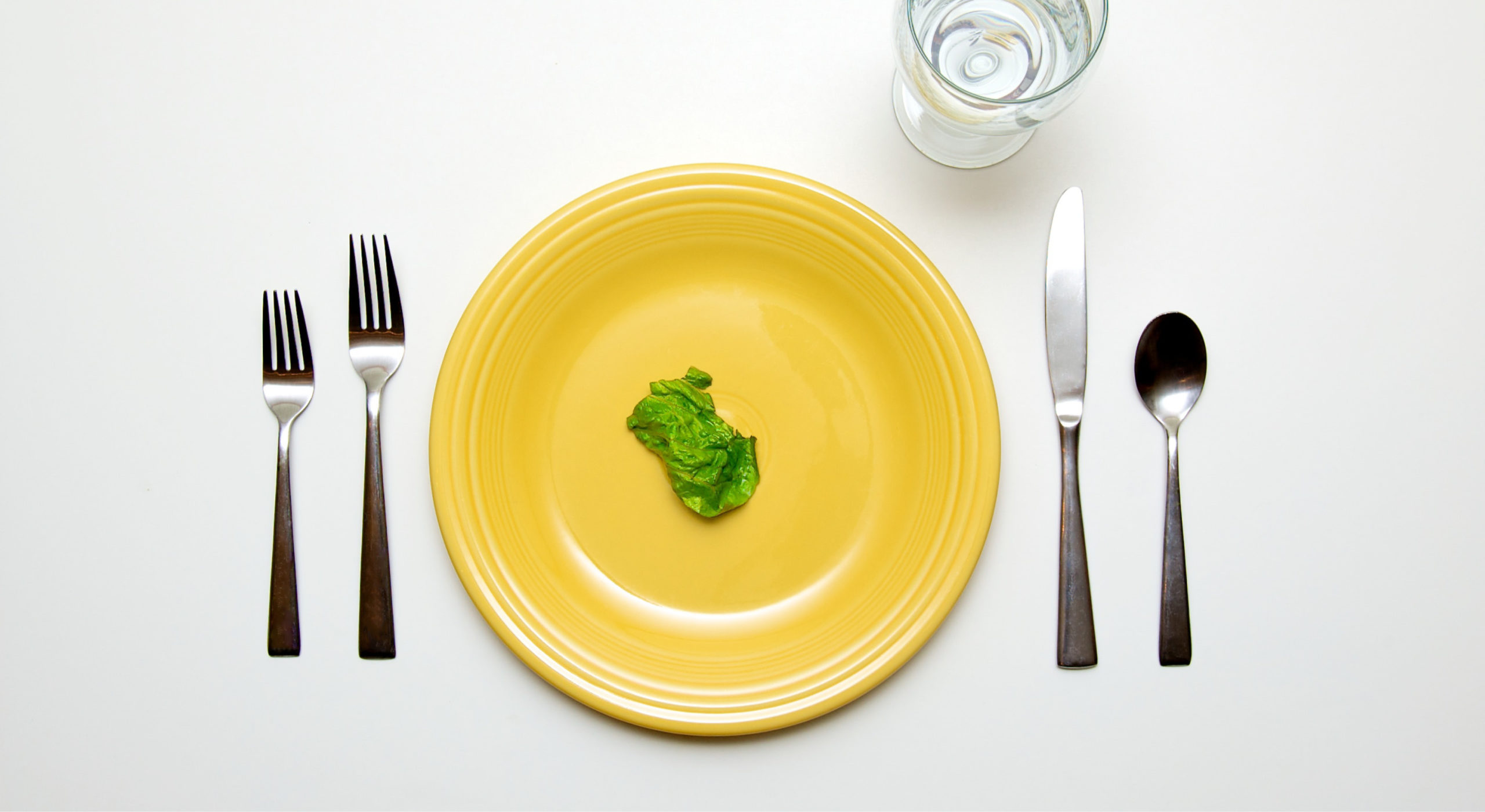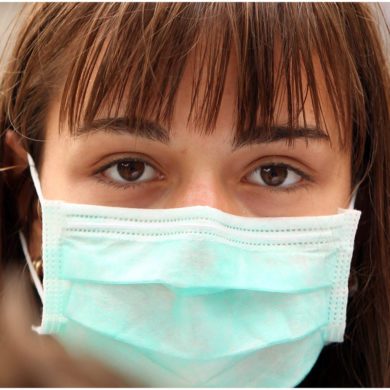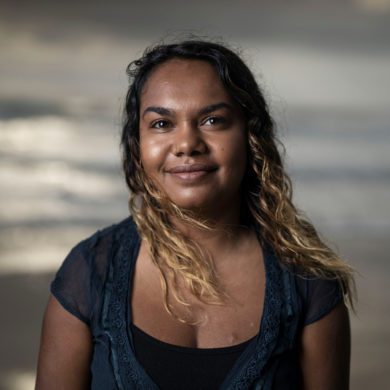When Brigitte* lost her job earlier this month thanks to Covid-19, the 26-year-old waitress and stand-up comedian felt a creeping sense of dread.
Not only had she lost her source of income, but having battled eating disorders on and off since she was a teenager, Brigitte knew that the long hours she would now be spending at home would put her at risk of relapse.
Diagnosed with OCD during primary school, Brigitte was put on medication which affected her appetite and weight, and led to an unhealthy obsession with food throughout her 20s. “I started to experiment with bulimia,” she says. “Not throwing up because I can’t make myself do that but binging and fasting.”
I started to experiment with bulimia
But over time, thanks at least in part to busy shifts at the San Francisco restaurant where she worked during the day, and nights taken up with comedy gigs, Brigitte’s priorities shifted and her attitude to food improved. Now, thanks to the disruption in her normal schedule, Brigitte can feel the binging behaviour creeping back in again.
“Because of being out-of-work, and because of boredom, I binge eat,” she says. “I think a lot of people are. I’m also back in the habit of punishing myself. If I eat beyond what I hoped it leads to a binge.”
“I’ve always been obsessive and need routines. I relied heavily on keeping busy pre-isolation. Now everything I used to do I can’t do any more.”
I’ve always been obsessive and need routines. I relied heavily on keeping busy pre-isolation
Brigitte is one of many women stuck in isolation who have taken to social media to cry out for help as eating disorders threaten to engulf their everyday existence.
“I underestimated how much the isolation and quarantine would affect my depression and eating disorder,” wrote one. “Having an eating disorder on quarantine is just the worst because you feel so overwhelmed with guilt. People are dying and I’m obsessed with the calories in my sandwich,” wrote another.
All over the world, including Australia – where it’s estimated that nine percent of people will experience an eating disorder at some time in their lives – eating disorders are flourishing thanks to the drastic disruption to people’s normal existences, caused by the COVID-19 pandemic.
The Butterfly Foundation, Australia’s leading eating disorder support resource organisation, has seen a marked increase in calls to its helpline, and a 21 per cent increase in activity around its webchat feature.
Stressors include disruptions to food shopping and food availability, TV images of empty supermarket shelves which may lead to food hoarding, changes to exercise routines, an inability to receive face-to-face support from counsellors or friendship networks, and a focus on comparing themselves to others while being stuck at home.
“For anyone experiencing an eating disorder, a change in routine, along with heightened levels of stress and uncertainty can lead to a significant increase in eating disorder behaviour and thoughts,” Thomson says. “Eating disorders thrive in isolation.”

Queensland-based eating disorder advocate Lexi Crouch, 31, knows only too well what it must be like for people trying to cope with the strange new world of coronavirus seclusion while also battling an eating disorder. Crouch was diagnosed with an eating disorder when she was 14, which developed into anorexia. She was hospitalised many times before starting her recovery journey at the age of 25.
“Anorexia is a lot to do with rituals and routines and structures,” she says. “At the peak of my anorexia, every day was timed to the minute, or even the second. Breakfast could take two or three hours to prepare, and had to be done in a set order – from measuring ingredients to deciding which kind of milk to use. If the slightest thing was out of control it would impact your whole day.”
She says that people who value structure and control could be completely thrown by this new world where the safety of routine has gone out the window, and suddenly the days look long and formless. “I’ve spoken to a lot of girls who say at the moment that the noise in their head is so loud, as opposed to when you’re outside with distractions and stimulation. Now it’s just you and your thoughts. For a lot of people that’s really triggering.”

In fact, many eating disorder services have been disrupted thanks to the restrictions around the virus. “A lot of our face-to-face treatment and support services have now ceased,” says Thomson.
However the organisation is working with the government and peak body ANZAED (Australia and New Zealand Academy of Eating Disorders) to ensure that people’s eating disorder management plans are accessible via Telehealth, including, phone calls, video chats or Zoom.
Other eating disorder support groups have been hit harder by the crisis, with Eating Disorder Victoria reporting that a reduction in volunteers, now working remotely, may lengthen wait times for phone support.
At this stage the Federal Government is yet to announce any specific funding for sufferers of eating disorders. Last week, the Prime Minister announced a $1.1 billion boost for telehealth, including $669 million to cover consultations via phone, Skype or Zoom, with $74 reserved specifically FOR mental health services. “We are eagerly awaiting announcements regarding details of this funding,” Thomson says.
The Butterfly Foundation has also contacted Coles and Woolworths to ask that people with eating disorders, who often have a rigid approach to what they will eat, be included in the two supermarkets’ priority access group.
This would mean that they can shop before the stores are open to the public, along with other vulnerable groups such as the elderly, as well as be given priority for online shopping.
For individuals, both Thomson and Crouch say that developing healthy routines (“things that build you up and nourish you,” Crouch says) during isolation is key to getting on top of an eating disorder that is starting to rear its head. Crouch says one of the best things people can do is plan their day. “Even if you just get up and make your bed, or do whatever else you can to keep your life as normal as possible,” she says.
Do whatever you can do to keep your life as normal as possible
She also recommends stepping away from social media which can be an easy, but not always helpful, escape. “I turned my social media off three days ago. I just thought, you know what, I could bury myself in this but it just didn’t feel right for me.”
Thomson suggests people could try listening to music, gentle stretching or movement (as long as it is within the recommendations of your current treatment), art, mindfulness and reading.
“And be kind to yourself,” she adds. “Take one moment and thought at a time.”
If you or someone you know is experiencing an eating disorder during this time, the Butterfly National Helpline is open every day between 8AM and 12 midnight AEST. 1800 334 673, webchat at Thebutterflyfoundation.org.au or email support@thebutterflyfoundation.org.au. The Australian Federal Government has also expanded the list of services that GPs can offer remotely, and now includes treatment for eating disorders. Speak to your GP or other health professional for more information.
*names have been changed












No Comments